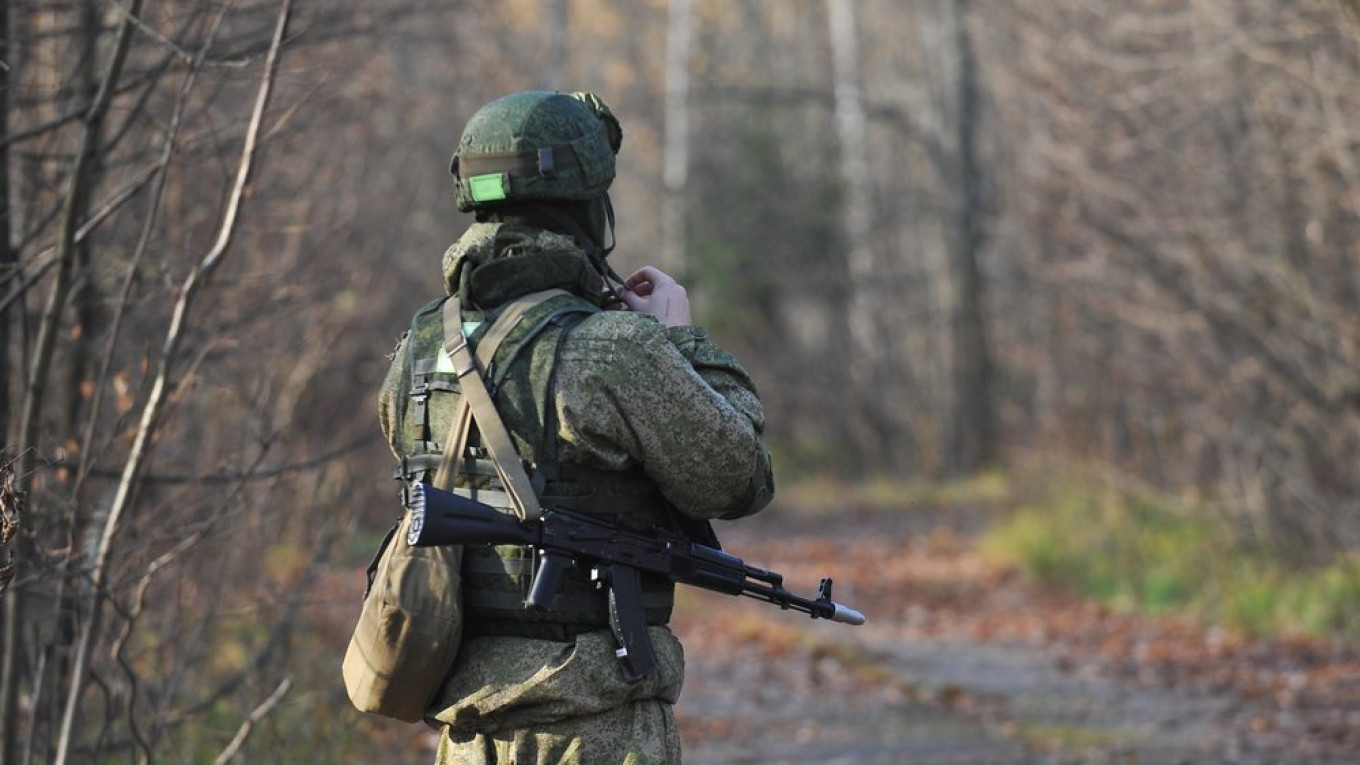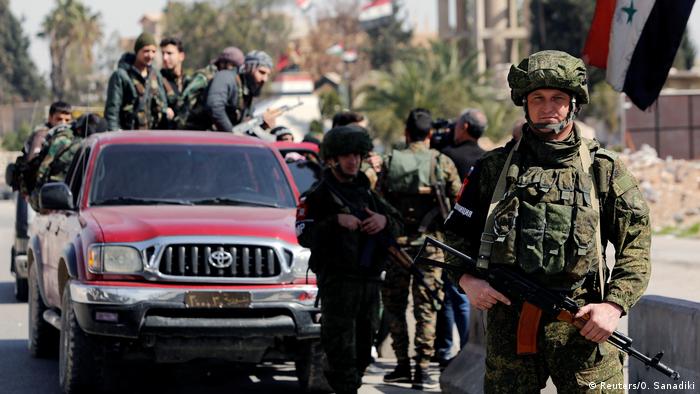Russia's Middle East Comeback
"There is a huge discrepancy between the Libyans fighting on the ground and the advanced technology in the air from the meddling foreign powers."
"It's like they are different worlds."
Emad Badi, Libyan scholar, Middle East Institute
"It is very clear that Russia is going all in on this conflict."
"Why all this pain? Just stop this now and assign the guy [Khalifa Hifter] to rule us."
Gen.Osama al-Juwaili, commander, Tripoli government
"I categorically reject speculation of this kind [Bloomberg September report that over 100 Wagner contractors arrived in Libya at a forward base to support eastern Libyan strongman Khalifa Haftar’s assault on the capital Tripoli].",
"We don’t believe there are grounds to make assertions and speculations like this."
"We’re acting in the interest of Libyan [conflict] settlement. We support the appropriate efforts [to achieve this], including through the UN. We’re in dialogue with those who in one way or another influence the situation."
Deputy Russian Foreign Minister Sergei Ryabkov
 |
| Alexander Avilov / Moskva News Agency |
Libyan militias, freed from the tyrannical constraints of Moammar Gadhafi to keep tribal antipathies in check, have been battling it out for primacy for years since his gruesome death. A reflection of the same kind of sectarian and tribal chaos the death of Saddam Hussein after the U.S.-led invasion of Iraq occasioned. Medics at the Aziziya field hospital south of the contested capital Tripoli have increasingly encountered different types of injuries beyond the more conventional shattered limbs and gaping wounds resulting from the crude combat techniques of the warring factions. Russian mercenary snipers, according to Libyan fighters, have been responsible for narrow apertures as bullets enter a head or a torso, killing instantly, the bullet remaining in the body.
No exit wound is familiar to those who recognize the symbolism from other fields of conflict, such as eastern Ukraine, as an identifier of the deadly ammunition used by Russian snipers. Several hundred additional Russian mercenaries have been reported to have arrived in the last six weeks, signifying a broadening of the Kremlin campaign to restore its influence across the Middle East, taking advantage of the vacuum created by the uncertainty of orders emanating from the White House of an imminent and full departure of American troops from the region.
The previous four years of financial and tactical, but never acknowledged support by Russia of an acceptable Libyan strongman has been accelerated by the Kremlin's more assertive role in shaping Libya's civil war to an outcome Russia can live with. In the process introducing advanced Sukhol jets along with co-ordinated missile strikes and precision-guided artillery. And of course, the greater presence of the vastly effective snipers. In other words, reprising the Syrian civil war intervention to great effect.
 |
| Russian troops have been on the ground and in the air in Syria since 2015 |
Militia leader General Khalifa Hifter is the recipient of Moscow's backing, joining with the United Arab Emirates, Egypt, Saudi Arabia and provisionally, France as the favoured leader in competition with the current United Nations-backed Tripoli government which, albeit officially supported by the U.S. and other Western nations, is championed only by Turkey, an Islamist nation spreading its influence in full support of militias whose zealous passion in supporting Sunni fascism has Turkey's full approval, reflecting Turkey's own dedicated ideological preference.
Theoretically, choosing to back General Hifter is seen as a check to the influence of political Islam and the restoration of an authoritarian order. The continued emergence of Russian mercenaries seen to be linked closely to the Kremlin, represents yet another parallel to the Syrian civil war. When an initiative succeeds, it calls out for replication in other similar circumstances. The Kremlin-linked private company, the Wagner Group, involved as well in Syria, has deployed the Russian snipers.
The embargo imposed by the United Nations eight years ago on Libya is obviously beyond frayed and in full retreat. Libya, three times the geographic area of Texas, pumps 1.3 million barrels of oil daily from its vast oil reserves. Its Mediterranean coastline, a mere 500 kilometres from Europe's Italian coast has been the gateway for tens of thousands of migrants out of the Middle East and Africa bound for Europe.
The Emirates and Turkey have each unleashed fleets of armed drones in the interests of gaining the upper hand for their divergent candidates for power. During the past six months, according to the United Nations, the two sides have been responsible for over 900 drone missions, while the ground conflict between militias of 400 fighters in strength where the fighting occurs in deserted districts on the southern outskirts of Tripoli speaks of a far more basic conflict of matched capabilities; a reflection of ancient deadly animosities formerly kept in check by Gadhafi.
Last April, UN Secretary General Antonio Guterres felt confident in travelling to Tripoli to finalize a peace agreement, when the conflict appeared to have fizzled. Then, abruptly, the civil war erupted once again as General Hifter launched his Libyan National Army on an unexpected assault on the capital.
![Russia's endgame in Libya Khalifa Haftar, commander of the Libyan National Army (LNA) militia, leaves after a meeting with Russian Foreign Minister Sergey Lavrov in Moscow on November 29, 2016 [File: Reuters/Maxim Shemetov]](https://www.aljazeera.com/mritems/imagecache/mbdxxlarge/mritems/Images/2019/7/10/cc5449c6f7e14258bbe136e656e79ba6_18.jpg) |
| Khalifa Haftar, commander of the Libyan National Army (LNA) militia, leaves after a meeting with Russian Foreign Minister Sergey Lavrov in Moscow on November 29, 2016 [File: Reuters/Maxim Shemetov] |
Labels: Conflict, General Hifter, Intervention, Libya, Mercenaries, Russia, Syria

<< Home